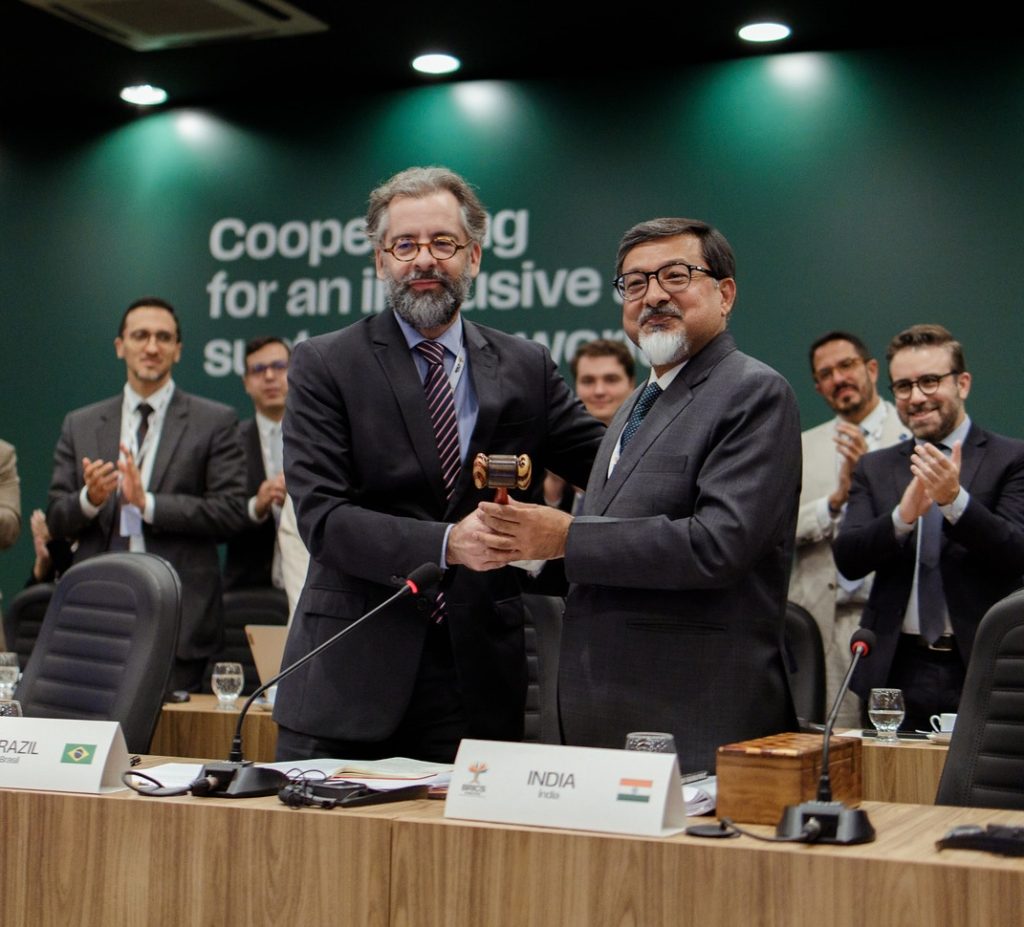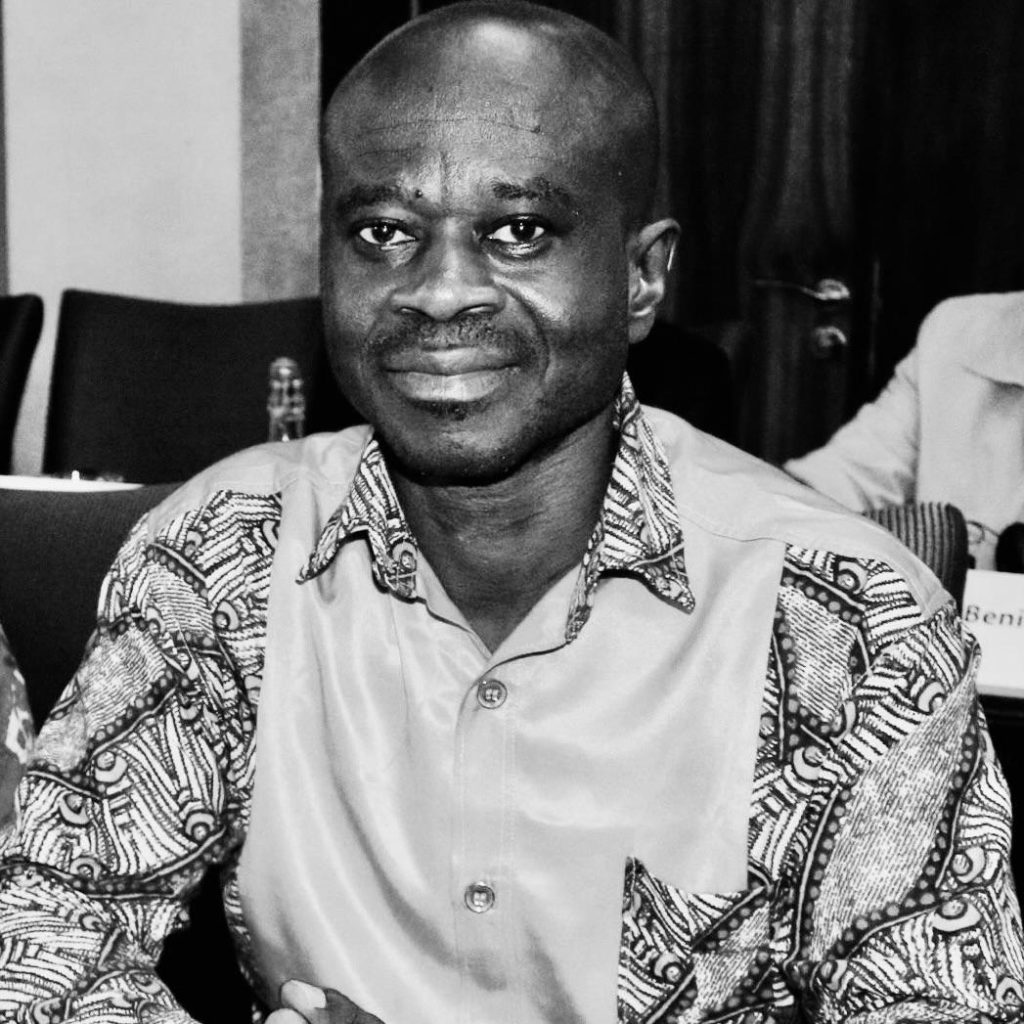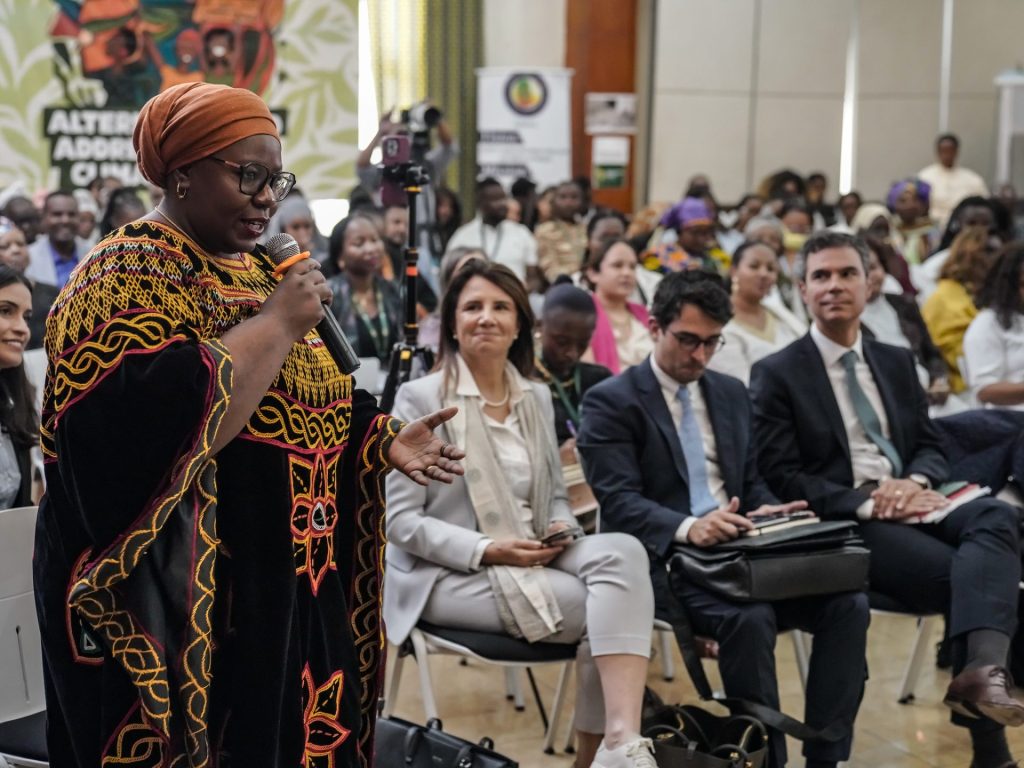Our discussion has been edited for clarity and brevity
MM: What is the relationship between climate and health, and how is climate change affecting health systems in Africa?
RE: Climate change affects health through direct impacts such as extreme heat waves, like those witnessed in North Africa during the summer, where temperatures reached around 50 degrees Celsius. Also, floods and droughts cause injuries, displacement, and loss of life, like those which happened in Ethiopia last year. Heat waves and droughts are increasing because of heat-related illnesses and malnutrition. For example, in the Sahel region, prolonged droughts have contributed to food insecurity, leading to malnutrition, which weakens immunity and drives up hospitalisation rates.
Climate change also has indirect effects. including worse air pollution, increases in the spread of vector-borne diseases like malaria and dengue, and disruptions to food and water security. These lead to malnutrition and water-borne diseases. Health systems in the continent are already struggling with so many challenges, including a high burden of disease. And after the COVID-19 pandemic, that burden has increased. The Africa Centre for Disease Control (CDC) is trying to build resilient healthcare systems across the continent and is strengthening the public health institutions through the new public health order.
There is also a lack of climate-resilient health infrastructure. So many healthcare facilities in Africa are not built to withstand extreme heat waves, floods, and droughts, nor do they have reliable energy sources. Hospitals in rural areas in the continent often rely on inconsistent power supplies, making it difficult to maintain cold chains for vaccines or operate lifesaving equipment.
Another challenge is financial constraints and gaps in climate health adaptation. Many countries struggle to secure funding for preparedness measures such as early warning systems for disease outbreaks.
Some countries are incorporating climate resilience into their health policies. Egypt now has two green hospitals that can be considered climate resilient. Kenya and Nigeria are investing in renewable energy for healthcare facilities, focusing on remote areas. Ghana has developed a national climate change and health strategy to address climate-related health risks. There are also regional and global collaborations and institutions. The World Health Organisation (WHO) and Africa CDC are working with national governments to enhance climate resilience, knowledge sharing and capacity building.
MM: What makes a healthcare system climate resilient? What makes a hospital green? what makes a health care system well adapted to climate change?
RE: There is a WHO framework that sets out certain standards, such as workforce, energy, infrastructure, technologies and products, and water, sanitation, hygiene, and healthcare waste, that can be used to identify climate-resilient healthcare facilities. In addition, the need for strengthening core national capacities for the building of resilient and sustainable health systems, conduct vulnerability and adaptation assessments, and develop Health National Adaptation Plans aligned with comprehensive National Adaptation Plans, including any relevant health and environment co-benefit action. Moreover, accelerated leadership, governance, and financing is needed to support the implementation of integrated, essential climate-related health interventions informed by the vulnerability and adaptation assessments and Health National Adaptation Plans.
Adding climate to an already burdened system is very difficult to implement. In my previous work at the WHO, we would see very successful pilot models in certain spaces and individual efforts but not collective efforts and not at a systemic level. National efforts to ensure that facilities and the health system are climate-resilient are lacking.
MM: Why should health and climate policy be integrated?
RE: Health must be central to climate policy because climate change is a major public health threat. Policies aimed at reducing emissions, such as transitioning to cleaner energy sources, have co-benefits for health. For instance, phasing out fossil fuels reduces air pollution, which in turn lowers rates of respiratory diseases like asthma and chronic pulmonary diseases. Studies also show that air pollution contributes to an estimated 1.1 million deaths per year in Africa, making clean energy policies not just an environmental issue but a public health necessity.
On the other hand, health policies need to account for increased disease burdens, rising temperatures, and changing rainfall patterns, which are leading to the spread of vector-borne diseases like malaria and dengue into new areas. Malnutrition and waterborne diseases are increasing due to climate-related disruptions in agriculture and water supply. Health policies must address these by integrating climate resilience into nutrition programmes and water safety initiatives. There is also strengthening healthcare infrastructure; for example, resistant hospitals and early warning systems for disease outbreak are essential.
MM: Are there some countries or regions that are doing better than others in taking health and climate change seriously? Are there any areas that are going unaddressed?
RE: From my experience, East Africa is taking the intersection between climate change and health seriously. We can see the increase of the awareness of people in this context.
The impact in Rwanda—one of the cleanest countries on the continent—is visible. In Kenya, I also observed a growing public awareness of climate change. During my time there, people demonstrated a strong commitment to policy change and actively engaged in driving those policies forward.
There are significant financing gaps that hinder efforts to make existing healthcare systems and facilities climate-resilient in Africa. This challenge has been exacerbated by cuts in foreign aid, which previously supported many essential disease control programs on the continent. As donor funding declines, programs addressing malaria, tuberculosis, HIV/AIDS, and emerging infectious diseases are at risk of being scaled back or discontinued.
The reliance on external aid creates vulnerability and may undermine progress that countries have made in tackling both climate change and its health impacts. In light of this, there is an urgent need for African countries to reduce aid dependency by strengthening domestic resource mobilization and identifying innovative financing mechanisms to support health and climate resilience.
MM: What is the best way to connect or bring together policymakers and people like scientists and doctors to create resilient health systems?
RE: There is a significant gap between the evidence being produced and the strategies and policies that are currently being implemented. We must ensure that the right information is not only generated but also effectively disseminated. It’s crucial to communicate this evidence to the right people and the appropriate stakeholders across the continent.
This gap becomes particularly evident during outbreaks and pandemics. Decision-makers rely on science to make evidence-based choices. This is a critical moment—one in which we need to create platforms and forums for knowledge sharing. The way we disseminate and apply evidence now will shape the future of our healthcare systems and determine how effectively we respond to future health emergencies.
We must be prepared. We must understand the evidence we are generating and be capable of translating it into action. COVID-19 will not be the last pandemic—it was only the beginning.
Reem Elsayed is an Egyptian health professional currently studying International Health and Tropical Medicine at Oxford University. She previously worked as a fellow at the Universal Health Coverage and Health Systems Department at the World Health Organization’s Regional Office for the Eastern Mediterranean and as a Technical Officer& researcher with Egypt’s Healthcare Authority. She represented the Northern Region in the Africa CDC’s inaugural Youth Advisory Team for Health.





